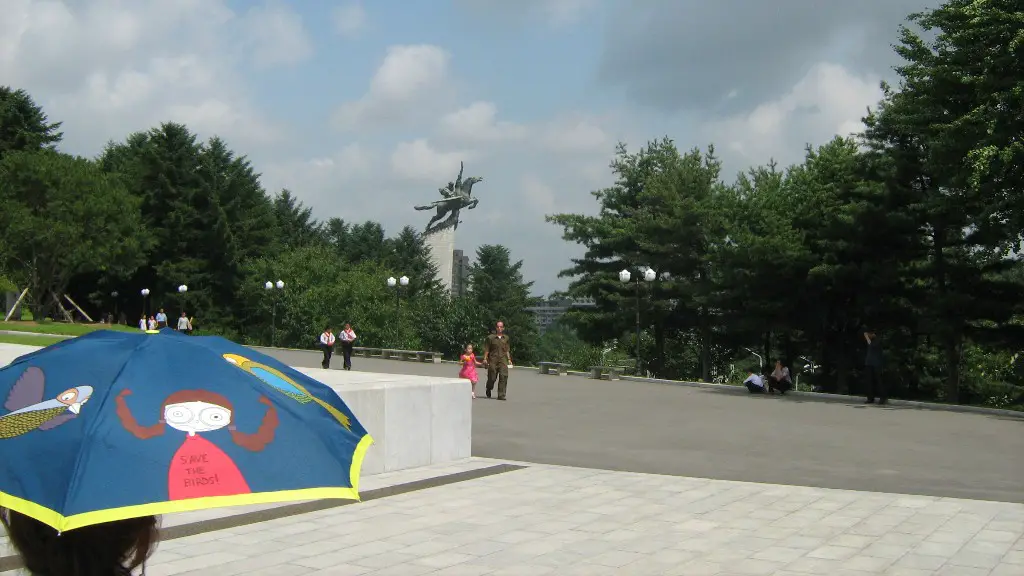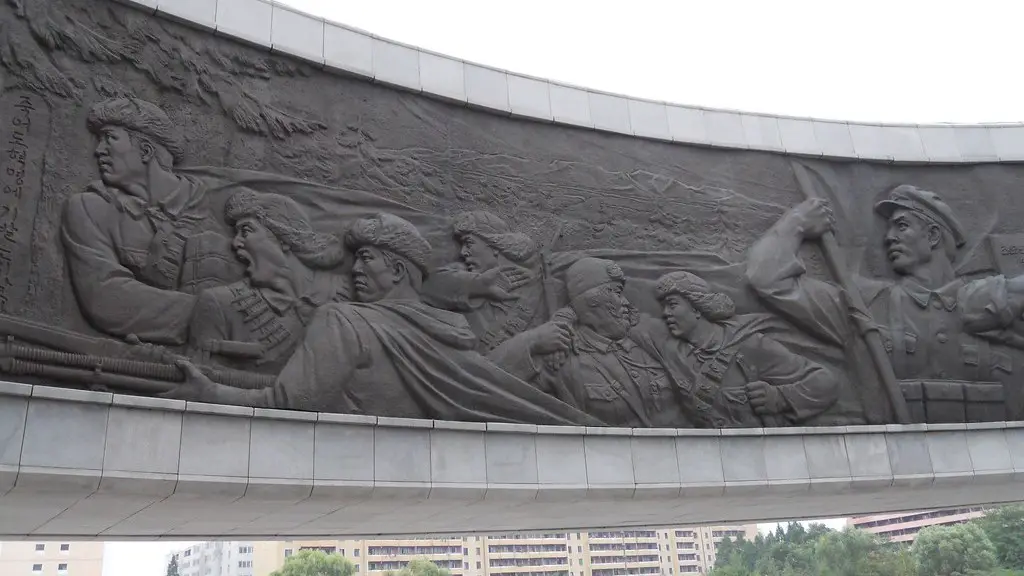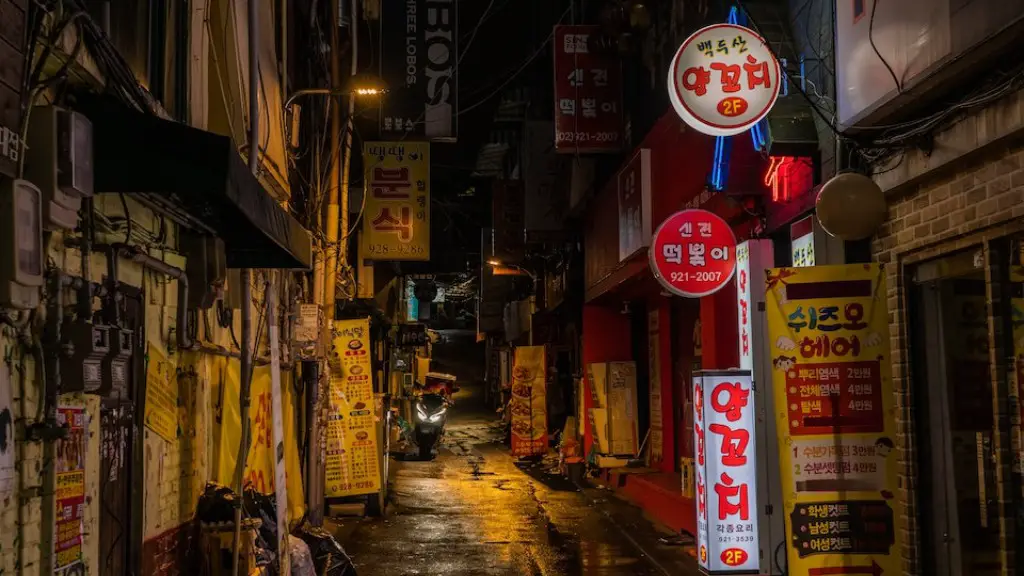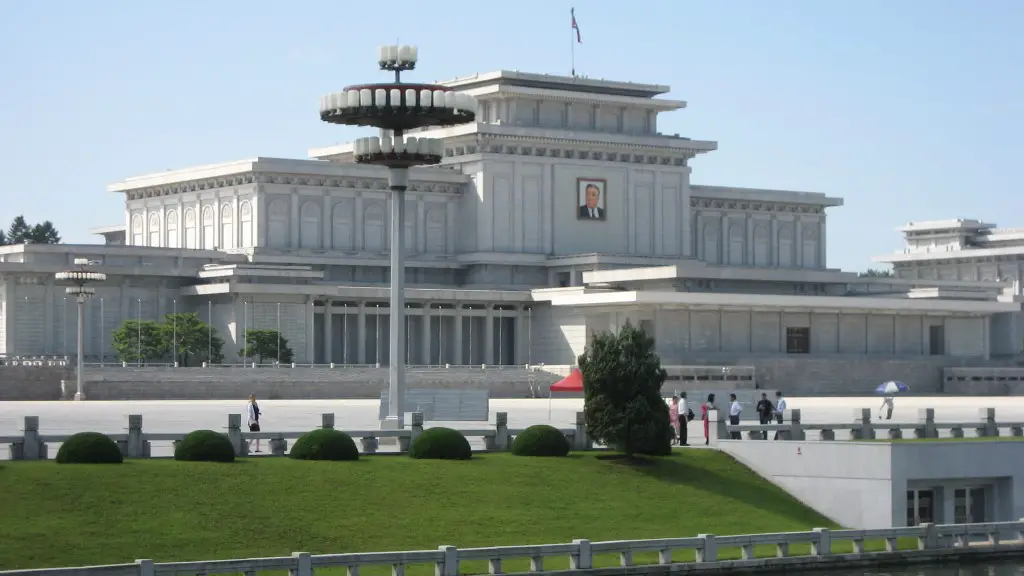Sanctions Imposed On North Korea
North Korea has been subject to economic sanctions from the United Nations Security Council since 2006 due to its nuclear and ballistic missile programmes. These sanctions are primarily aimed at denying the North Korean regime access to financial resources that could be used to fund their missile and WMD programmes.
In 2017, the UN Security Council unanimously adopted a resolution to significantly expand sanctions against North Korea. The new sanctions banned North Korean exports of coal, iron, lead, and seafood in an effort to decrease the finances available to help sustain its nuclear and missile programmes. The sanctions also placed restrictions on its imports of oil, aviation fuel, and banking services. It also forbade countries from transferring military technology to North Korea.
The ultimate aim of the sanctions is intended to economically pressure the North Korean regime to abandon its nuclear and missile programmes. By denying the regime access to revenue and resources, the intention is to lessen the ability to finance and conduct missile and nuclear tests.
The effectiveness of sanctions can be measured by their direct impact on the North Korean economy but also by the level of compliance from other member nations of the United Nations. According to the UN, in 2018, 106 countries reported on their implementation of sanctions imposed on North Korea, whereas only 72 had been doing so in 2017
The organisation 38 North, which focuses on North Korean issues, has analysed data from a Bloomberg database and found that in 2018, North Korea’s export of coal and seafood decreased significantly compared to 2017. Similarly, the imports of crude oil and petroleum gas decreased by 30%. By using the database and sources from the Economy Ministry of China, 38 North also found that North Korea earned $115 million less than in 2017.
Interviews with sanctions experts worldwide, provide a valuable and diverse perspective on the effectiveness of sanctions on North Korea. One such expert notes that while there has been evidence of a decrease in North Korean income, it’s difficult to quantify what effects the sanctions have had due to the fact that global trade data on North Korea is often unreliable. Additionally, it’s difficult to determine how much of the decrease in North Korean income is actually due to the sanctions, as opposed to other factors such as natural disasters.
Revenue From Foreign Workers
A 2018 report by experts from the Beyond Parallel project estimated that North Korea had earned around $1.7 billion in 2016 as a result of sending workers abroad. This figure is significantly higher than the much lower official figures given by the regime, demonstrating the regime’s deception. Despite this discrepancy, it does still highlight a reliable source of income for the regime.
The UN Security Council has taken steps to restrict this income source, by introducing caps on the number of workers that operating countries can accept from North Korea. However, it’s clear that this is still a major source of income and as long as it continues, it will help to cushion the regime against the impact of the sanctions.
From interviews conducted with multiple foreign workers, we gain insight into life as a North Korean migrant worker in Russia. One worker, who has been living and working in the country for over 20 years, commented that despite the sanctions, life has not gotten worse for those living there. This further strengthens the idea that foreign revenue is helping to stabilise the regime.
Jong Eun, a North Korean defector and human rights activist, states in an interview that it is always difficult to measure the effectiveness of economic sanctions as it is impossible to measure the impact of what would have occurred without them. She does, however, agree that the imposed sanctions have no doubt devastated the North Korean economy.
North Korea’s Strategic Response
Rather than trying to comply with the UN’s anti-nuclear sanctions, North Korea has implemented a more strategic response. Relations between North Korea and South Korea have warmed and in 2019, North Korean officials attended the Seoul G20 Summit. It is likely that the regime is looking to improve relationships with other countries to diversify its income sources and impose trading sanctions on the UN.
In early 2019, North Korea received humanitarian assistance from the People’s Republic of China in the form of 30 tonnes of medical supplies. While this is a relatively small amount, this gesture does serve to demonstrate Beijing’s distancing from the UN’s imposed sanctions against North Korea. Furthermore, reports also suggest that China continues to export oil to North Korea, maintaining a degree of economic stability in the face of heavily enforced UN sanctions.
Additionally, North Korea has invested in developing relations with countries in Africa and the Middle East, particularly focusing on countries with weakened internal regulation systems. These countries are viewed as more amenable to sanctions-busting if North Korea is able to pay their officials enough. It has also become a major player in cryptocurrency, allowing it to make purchases even in the face of increasingly aggressive sanctions.
International Reactions
Some experts fear that North Korea’s strategic response to the sanctions, together with the unwillingness of some countries to comply with UN’s anti-nuclear sanctions, threatens to weaken the global system of nuclear non-proliferation. Without the imposition of tough sanctions, the UN would be powerless to stop countries like North Korea from proliferating nuclear weapons, further endangering the security of the international community.
The response from major players in the international community has generally been positive. The United States has praised the sanctions, and the effectiveness of the UN in dealing with the situation in North Korea. The South Korean government has welcomed the sanctions, but also urged the international community to do more to bring an end to North Korea’s nuclear program.
The European Union also welcomed the additional UN sanctions in 2017 and has taken further steps to restrict the exporting of luxury goods to North Korea, completely banning exporting such goods and services. In April 2019, the EU imposed more sanctions on the regime in response to earlier missile tests, adding nine people and four entities to its sanctions list.
Impact on North Korean Citizens
Amidst the international pressure on North Korea, the country’s citizens are forced to suffer consequences. Much of the country’s external trade and financial activities have been blocked by international sanctions – leaving citizens to pay a particularly exorbitant price
The sanctions, together with the country’s disastrous economic mismanagement, have deprived the country’s citizens of access to basic goods like food, fuel, and medicines, leading to serious humanitarian consequences. A United Nations report published in March 2019, estimated that 10.3 million North Koreans, or around 40% of the population, are undernourished.
In response to the suffering of the North Korean people, some organisations have called for the alleviation of civilian suffering. For example, the International Federation for Human Rights in 2018 issued a statement calling for a humanitarian exemption clause in the UN’s sanctions resolution. This would allow medical and humanitarian solutions to be made available to the North Korean population, though it should be noted that this measure has not yet been implemented.
Efforts of Non-Governmental Organisations
Non-governmental organisations (NGOs) also try to mitigate the effects of the sanctions on North Korean citizens. For example, the NGO Partners Korean Peninsula, has been active in providing North Korean citizens with access to educational materials through its digital library project. As the UN sanctions ban physical shipments of books to North Korea, the NGO has temporarily opted to store and distribute books in South Korea.
Other NGOs have worked towards providing humanitarian assistance to North Korea, such as financial assistance for food and medical supplies. For example, the World Food Programme is the only organisation currently able to provide a comprehensive food assistance programme in North Korea. Despite this, the WFP has requested for twice as many resources for its operations in 2019, due to difficulties in obtaining financial resources amidst the impact of the international sanctions.
Government Aid from South Korea
South Korea has also sought to provide assistance to North Korea, despite the sanctions. In 2019, South Korea sent the North Korean government 100 tons of aid, including material to help with cold prevention and medical treatments. Communications between North and South Korea have continued to improve, even in the face of sanctions and tensions between North Korea and the United States.
However, despite these relatively positive moves, South Korea is still limited in its ability to provide assistance due to the UN sanctions. For example, the South Korean government can only provide aid worth up to 50 million dollars per year, which is significantly lower than the 150 million dollars of aid proposed by the government of South Korea to North Korea in 2018.
Conclusion
It appears that the UN Security Council’s sanctions have been moderately effective in curtailing North Korea’s nuclear programme. While the amount of trade data available on North Korea is still limited, there is evidence suggesting that the sanctions have had some effect on North Korea’s income.
However, it appears that North Korea still has access to revenue sources outside of the UN sanctions, through its exports of workers, revenue from cryptocurrency and imports from China. Furthermore, the effect of the sanctions on North Korea’s civilians cannot be overlooked. Many citizens of the country have suffered from the economic toll of the sanctions, affecting their access to basic goods, services, and education.





